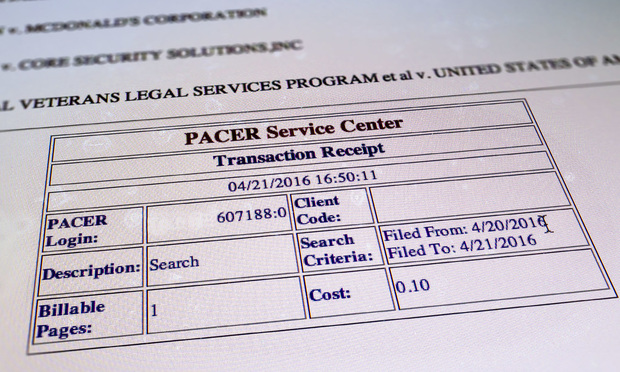The federal judiciary misused millions of dollars in fees derived from an electronic public web portal for court documents to fund certain programs that federal law did not allow, a Washington judge ruled on Saturday.
U.S. District Judge Ellen Segal Huvelle said the United States is liable for certain improper expenses that violated the E-Government Act of 2002. The ruling came in a class action that alleged the judiciary’s administrative office set fees too high for the online portal Public Access to Court Electronic Records, commonly known as PACER.


 Screen grab from PACER.
Screen grab from PACER.






